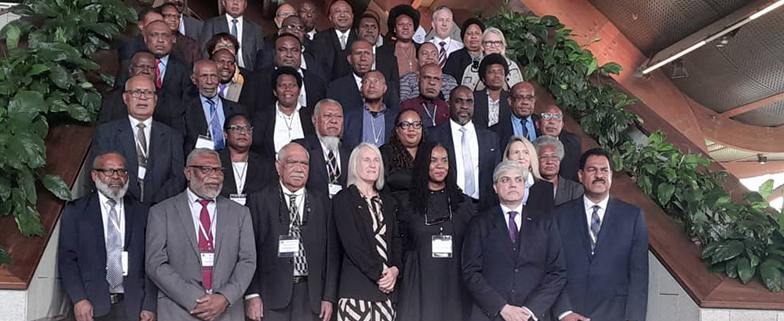The ELD Hacking Threat: Q&A with Serjon’s Urban Johnson – Safety & Compliance

ELDs are an easy gateway for hackers to get into a fleet’s IT network and do major damage, warns Serjon’s Urban Johnson.
HDT Graphic/Serjon headshot
Did you know your fleet’s electronic logging devices may be vulnerable to hackers?
It’s true. Serjon, a cybersecurity firm specializing in fleet transportation security, held a press conference during the Technology & Maintenance Council annual meeting in New Orleans in early March. Urban Johnson, senior vice president, information technology and cybersecurity services for Serjon, briefed media on the threats facing fleets with compromised ELDs.
ELDs are essentially communication devices used to record and report truck driver hours of service. Due to certain technical requirements of the regulations, ELDs require the ability to “write” messages to the truck’s network to obtain information, such as engine hours. The ELD also requires internet access to report the HOS information.
This creates a truck network-to internet communication bridge that introduces significant cybersecurity concerns.
We sat down with Johnson to learn more about this new cybersecurity threat to North American fleets and what they can do to protect themselves. (This interview has been lightly edited for clarity)
HDT: Many fleets aren’t aware that ELDs can be hacked. Talk a little about how hackers can gain access to an ELD.
Johnson: Different ELD vendors use different designs to deliver the functionality required by the ELD mandate. A common design is a hardware device that connects to the vehicle’s on-board diagnostics (OBD) port and then uses a Bluetooth or Wi-Fi connection to a cellular device, such as a tablet or cellphone, to collect the ELD information and report it.
That ELD information can be attacked by hackers locally (close to the truck) or remotely across the internet.
In a recent paper presented at VehicleSec’241, the researchers were able to compromise an ELD device locally by simply connecting to the ELD Wi-Fi connection point, which had a predictable SSID [network name] and a weak default password….



